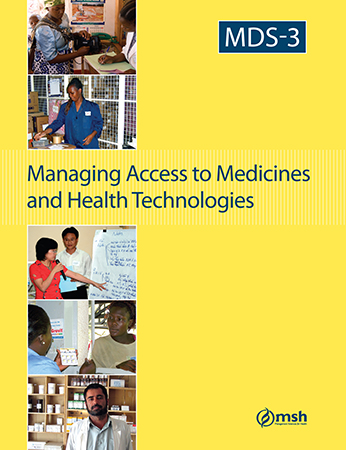
- 2013/1,136 pages
- If you live in a developing country, enter DEV at checkout to receive a 40% discount.
A Kumarian Press Book
8 1/2" x 11" format, with illustrations
MDS-3:
Managing Access to Medicines and Health Technologies
Paperback: $110.00
ISBN: 978-1-56549-587-6
For some three decades, Managing Drug Supply (MDS) has been the leading reference on how to manage essential medicines in developing countries. Now, reflecting some 15 years of dramatic changes in politics and public health priorities, advances in science and medicine, and the advent of information technology, this new edition covers the full range of issues that are important to today's health practitioners and policymakers in their efforts to ensure universal access to, and appropriate use of, quality medicines and health technologies around the world.







